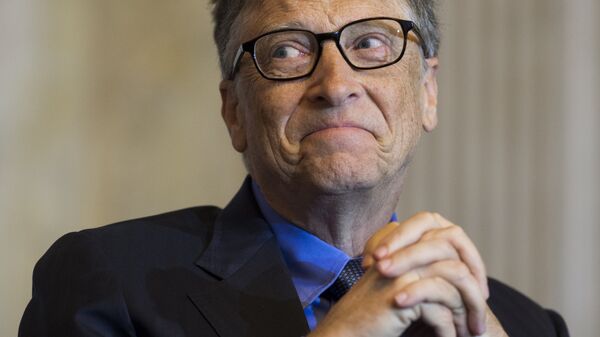Bill Gates has emphasised that malnutrition can hinder the ability of Indian children to learn, leading to a drastic decline in their individual potential, local media reported on Sunday.
While India is currently going through an economic slump, Gates believes that by 2029, the country will be stable and developed enough to pull its existing poverty-stricken section of people out into a better standard of living with more government investments in the health and education sectors, the reports said.
In India 44 percent of children under the age of five are underweight while 72 percent of infants and 52 percent of married women have anaemia.
Gate’s belief in India’s long-term potential came as the tech mogul praised India's Aadhaar Card and digital payments system. Aadhaar is a 12-digit unique identification number issued by the Indian government to every individual resident of India in the form of an official individual government identity card.
“It's fantastic the way that the Aadhaar identity system and the overall Unified Payments Interface (UPI) system is gaining adoption, and there's some great lessons out of that work. We partner with Indians to understand that how do the lessons from India apply to other countries for things like digital identity or financial services," the 64-year old Microsoft Co-Founder was quoted as saying.
The philanthropist is currently on a three-day visit to India to review the work of his foundation in the country.
With a net worth of $110 billion, Gates recently dethroned Jeff Bezos, the founder of e-commerce giant Amazon, as the world’s richest man. Though retired from Microsoft, Gates leads quite an active life with his philanthropic venture, the Bill and Melinda Gates Foundation (BMGF).
Based in Seattle, the BMGF was launched in 2000. It focuses on support causes relating health-care, sanitation, agriculture and financial services for the underprivileged sectors in India. The BMGF has also partnered with Indian manufacturers to develop affordable and effective vaccines.


